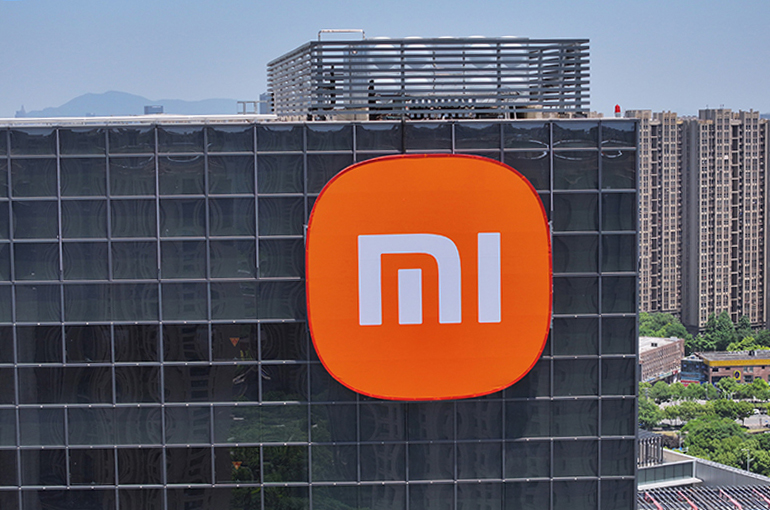 Xiaomi’s Second-Quarter Profit More Than Doubles as EVs, Smart Appliances Drive Record Sales
Xiaomi’s Second-Quarter Profit More Than Doubles as EVs, Smart Appliances Drive Record Sales(Yicai) Aug. 20 -- Xiaomi, a major Chinese maker of consumer electronics and electric vehicles, said second-quarter profit more than doubled as revenue hit a fifth consecutive quarterly record, driven largely by surging EV demand and booming smart home appliance sales.
Net profit soared 134 percent to CNY11.9 billion (USD1.7 billion) in the three months ended June 30 from a year earlier, the Beijing-based company said in its latest earnings report released yesterday. Revenue jumped 31 percent to CNY116 billion (USD16.1 billion).
On Xiaomi’s earnings conference call President Lu Weibing highlighted several quarterly milestones, including record-breaking orders for its new YU7 sport utility vehicle, the debut of the firm’s first self-developed 3-nanometer chip across three products, a top-three global ranking in smartphones with a leading market share in China by activations, and ongoing robust growth in its home appliance business.
Xiaomi expects its automotive business to continue scaling rapidly, with blockbuster sales from new models, and it has set a clear target to expand internationally by entering the European market in 2027, Lu said, adding that the firm expects its home appliance business to sustain rapid, healthy growth by leading the industry shift toward “smartification.”
“Over the past five years, Xiaomi has continuously transformed its business and upgraded its management, leading to a sustained improvement in our overall capabilities, which has allowed us to deliver impressive results for several consecutive quarters,” he said. “I'm confident that in the next five years, Xiaomi will undergo a tremendous qualitative change.”
Research and development outlays jumped 41 percent to CNY7.8 billion in the quarter, with a record R&D headcount of 22,641, and the firm will spend CNY30 billion on R&D this year, it said. Xiaomi had cash and cash equivalents of CNY36 billion and cash resources of CNY235.9 billion, while operating cash flow generated CNY23.5 billion.
The company’s shares [HKG: 1810] closed up 0.3 percent at HKD52.55 (USD6.72) each in Hong Kong today. They have gained about 52 percent so far this year.
EVs as Growth Driver
Second-quarter revenue from the smart EV, artificial intelligence, and other new initiatives segment reached CNY21.3 billion, with CNY20.6 billion coming from the smart EV business.
Despite the smart EV business reporting operational losses of CNY300 million (USD41.8 million), it still achieved a strong gross margin of 26.4 percent. Xiaomi delivered 81,302 cars between April and June, with an average selling price of CNY253,662 (USD35,300) per unit.
"The success of our EV business demonstrates the power of Xiaomi's model and methodology," Lu said. “We achieved this by entering directly into the high-end segment rather than starting from the entry level.”
In June, Xiaomi launched its first SUV, the YU7, which received over 240,000 lock-in orders within 18 hours. The three versions -- the base YU7, the YU7 Pro, and the YU7 Max -- are priced at between CNY253,500 and CNY329,900, and target the luxury segment.
Xiaomi's management team expressed confidence in achieving its annual delivery target of 350,000 units for this year and predicted that the EV business would achieve quarterly profitability in the second half.
Smartphones x AIoT
Xiaomi's core smartphone x AI of Things segment generated revenue of CNY94.7 billion (USD13.2 billion) in the quarter, up nearly 15 percent, with gross profit margin improving to 21.6 percent.
Smartphone revenue fell 2.1 percent to CNY45.5 billion, despite global shipments rising 0.6 percent to 42.4 million units, as the average price per unit dropped 2.7 percent to CNY1,073 (USD150).
Xiaomi maintained strong market positions in the period, ranking first in Southeast Asia with an 18.9 percent market share and second in Europe, the Middle East, and Latin America, with shares of 23.4 percent, 18.7 percent, and 19.6 percent, respectively. In the Chinese mainland, it ranked first by smartphone activation volume.
Gross profit margin on smartphones narrowed to 11.5 percent from 12.1 percent. Pressure on the margin stemmed from higher-than-expected memory price increases and export controls on semiconductor materials, Lu explained. Moreover, Xiaomi launched only six new phone models in the first half, while its competitors released dozens.
"We expect smartphone gross margins to recover in the fourth quarter with new product launches," Lu noted. “Long-term margin improvement requires a premium strategy, with continued investment in chips, operating systems, and AI.”
Revenue from Xiaomi's Internet of Things and lifestyle products business soared 45 percent to a record CNY38.7 billion, with a gross margin of 22.5 percent, up from 19.7 percent.
Large smart home appliances led the growth, with revenue up over 66 percent. Shipments of air conditioners, refrigerators, and washing machines surged 60 percent, 25 percent, and 45 percent to more than 5.4 million, 790,000, and 600,000, respectively.
Connected IoT devices on Xiaomi's platform, excluding phones, tablets, and laptops, reached 989.1 million units, a 20 percent increase. Users with five or more connected devices rose nearly 27 percent to 20.5 million.
Xiaomi launched its first-generation AI glasses in June, featuring ultra-light 40-gram frames with 12-megapixel optical capabilities and high-quality open-ear headphone functionality. The product received strong market reception, with 98 percent positive ratings on JD.Com.
Revenue from internet services rose 10 percent to CNY9.1 billion, with a gross margin of 75.4 percent. Global monthly active users hit a record 731.2 million in June, up 8.2 percent from a year earlier.
Overseas internet services revenue climbed 13 percent to a record CNY3 billion, accounting for one-third of Xiaomi's total internet services revenue. Advertising revenue grew 15 percent to CNY6.8 billion, and gaming revenue inched up 5.1 percent to CNY1.1 billion.
Editor: Futura Costaglione